The Duke University School of Medicine comprises 26 clinical and basic science departments. The school’s strong emphasis on research to improve clinical outcomes encourages collaborations among faculty members, departments, and other schools at the university and has resulted in the development of numerous centers and institutes.
Basic Science Departments
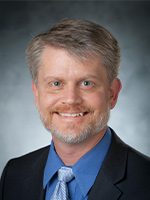
Interim Chair: Scott Soderling, PhD
Assistant: Chelsey Gobert
Chief Administrative Officer: Virginia King-Barker
Office: 255B Nanaline H. Duke
Campus PO Box: DUMC 3711
Phone: (919) 684-8085
The Department of Biochemistry is engaged in cutting-edge research that clarifies the molecular nature of biological processes with a vision of making key discoveries that will transform our molecular understanding of fundamental life processes and ultimately enhance human health. The department is composed of 20 primary faculty members and 13 secondary members from other departments throughout Duke University. Currently, there are 70 students in the Biochemistry Graduate Program and 11 postdoctoral fellows, 8 research associates.
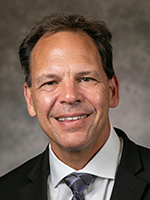
Chair: David Page, PhD
Assistant: Aretha Cooper
Chief Administrative Officer: Monica Elam
Office: 11072 Hock Plaza, Suite 1102
Campus PO Box: 2721
Phone: (919) 668-8828
The Department of Biostatistics & Bioinformatics (B&B) at the Duke University School of Medicine engages in methodological and collaborative research, providing international and regional leadership in biostatistics, genomics, biomedical informatics, artificial intelligence and health data science.
The department currently has over 75 primary and joint faculty members and 38 secondary and adjunct faculty members. Biostatistics & Bioinformatics offers five educational degree programs: the PhD Program in Biostatistics, the PhD Program in Computational Biology and Bioinformatics, the Master of Biostatistics Program, the Master of Management in Clinical Informatics (MMCi) and the Clinical Research Training Program (CRTP).

Chair: Scott Soderling, PhD
Assistant: Maggie Holly
Interim Chief Administrative Officer: Virginia King-Barker
Office: 388 Nanaline Duke
Campus PO Box: 3709
Phone: (919) 684-8085
The Department of Cell Biology focuses on research of the molecular structure and function of cells and their component parts with a vision of determining how cells interact to form embryos, tissues, and nervous systems; and to investigate their role in physiology, behavior, and tissue repair and regeneration. The department, which currently consists of 26 primary faculty members, seeks to prepare PhD and MSTP students and postdoctoral fellows for clinical, academic, and non–academic careers.
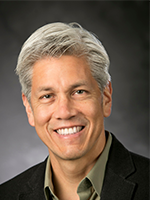
Chair: Raphael Valdivia, PhD
Assistant: Darren Carlino
Administrative Director: Todd Leovic
Office: 117 Jones Building
Campus Box: 3010
Phone: (919) 684-3578
The Department of Integrative Immunobiology serves as the focal point for research and education in immunology at Duke. The department consists of 19 primary faculty members and 23 secondary faculty members drawn from a range of basic science and clinical departments. The department provides a robust training environment for 30 PhD students and 18 postdoctoral trainees. Collaboration between basic and clinical immunologists provides fundamental insights into immune system development and function and into pathologies such as immunodeficiency, autoimmunity, infectious disease and cancer.
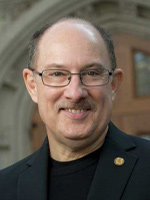
Chair: Joseph Heitman, MD, PhD
Administrative Coordinator: Melissa Palmer
Chief Administrative Officer: Cynthia ‘Kris’ Mathews
Office: 322 CARL Building
Campus PO Box: 3546
Phone: (919) 684-2814 OR (919) 684-2824
Research conducted in the Department of Molecular Genetics and Microbiology (MGM) spans model and pathogenic organisms and the full spectrum of genetics from unicellular to multicellular eukaryotic organisms, including C. elegans, zebrafish, stickleback fish, mice, and humans. Existing areas of research strengths include: 1) microbiology (virology, mycology, bacteriology); 2) host-pathogen interactions; 3) RNA biology including RNAi and epimutation; 4) yeast/fungal genetics and genomics; 5) genetics of model systems and vertebrates, mammals, primates, and humans; and 6) chromosome structure, function, replication, and repair. The department is currently composed of 37 primary faculty members, 43 secondary faculty members from multiple departments across the University, and 96 students.

Interim Chair: Staci D. Bilbo, PhD
Chief Administrative Officer: Samuel Kamau
Office: Bryan Research Building | GSRB II Rm 3016
Campus PO Box: 3209
The Department of Neurobiology aims to further our understanding of the brain and its role in health and disease through research and through fostering a collaborative community to educate the future leaders of neurobiology. Research topics include how neural circuits create behavior, the cellular and molecular mechanisms that make brain cells function and adapt, and the mechanisms of brain development. The department is composed of 17 primary faculty members. The interdepartmental Graduate Training Program in Neurobiology provides a robust training environment for 64 PhD students and includes 33 faculty who hold secondary appointments. The department works closely with faculty from the Duke Institute for Brain Sciences (DIBS), other basic science departments, and relevant clinical departments to mentor 60 postdoctoral associates.
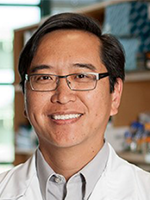
Chair: Lee Zou, PhD
Assistant: Lucy Taylor
Chief Administrative Officer: Traci McNeill
Office: C238A LSRC
Campus PO Box: 3813
Phone: (919) 684-5224
The Department of Pharmacology and Cancer Biology comprises 25 primary faculty, 71 graduate students and 33 postdoctoral fellows with complementary research interests and expertise. Ongoing research in the department addresses a myriad of important scientific questions in different areas of cancer biology, including cancer genetics and epigenetics, cancer genomics, cancer metabolism, genomic instability, cancer evolution, metastasis, targeted and immune therapies, and drug resistance. The laboratories in the Department share the common goal to integrate basic cancer research with translational and clinical studies, aiming to improve the diagnosis and treatment of human cancers.

Chair: Lesley Curtis, PhD
Assistant: Angelique Kosempa
Chief Administrative Officer: Michael Fern, PhD
Office:
215 Morris St., Suite 210
The Imperial Building
Durham, NC 27701
Campus Box: 104023
Phone: (919) 681 6709
The Department of Population Health Sciences first launched as a center in February 2016, was designated as a School of Medicine department July 1, 2017, and now houses a multi-disciplinary team of 51 primary faculty from the fields of epidemiology, health services research and policy, health economics, health measurement and behavior, and implementation science, and 80 secondary faculty. The department works where biology, behavior, environments, society, and health care intersect using tools of discovery, measurement, evaluation, and implementation to generate insights that affect health. In addition to research, the department houses a MS and PhD program as well as several cores that collaborate with other groups to provide expertise in qualitative research, bioethics, implementation science, health measurement, and access to electronic health data.

Interim Chair: Padma Gulur, M.B.B.S.
Assistant: Melinda Macalino
Business Manager: John Borrelli
Office: 5692 HAFS Building
Campus PO Box: 3094
Phone: (919) 681-6646
Duke Anesthesiology is comprised of 10 clinical divisions along with 10 centers and programs. The department’s mission is to lead with inquiry, teach with intention, and care with precision to push the boundaries of anesthesiology, reimagine perioperative medicine, advance the science of pain relief, and redefine excellence in critical care.
The department is supported by the commitment and collaborative efforts of our faculty, trainees and staff at Duke University Hospital, Duke Children’s, Duke Raleigh Hospital, Duke Regional Hospital, Davis Ambulatory Surgical Center, Duke Ambulatory Surgery Center Arringdon, and our clinics in Durham, Mebane and Raleigh.
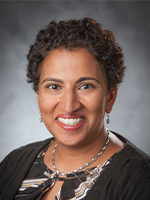
Interim Chair: Geeta Swamy, MD
Assistant: Mary Nettleton
Chief Administrative Officer: Ben Pratt
Office: 4584 Pink Zone, Duke South
Campus PO Box: 3135
Phone: (919) 684-0735
The Department of Dermatology consists of 32 faculty members within in the areas of General Dermatology, Pigmented Lesions, Immunodermatology, Lasers/Wound Treatment, MOHS Surgery, and Hair Disorders. The department also has eleven adjunct faculty members, sixteen residents, two fellow, and six postdoctoral scholars. The department focuses on three key areas: caring for patients; investigating skin diseases; and preparing students, residents, and fellows to be the next generation of highly-skilled dermatology specialists.
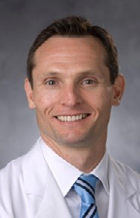
Chair: Charles J. Gerardo, MD
Assistant: Kim Batson
Administrator: Lowell Tyler, MBA
Office: 2301 Erwin Road, Ste 2600
Campus PO Box: DUMC 3096
Phone: (919) 681-0196
The Department of Emergency Medicine provides high-quality, timely, and compassionate emergency care for patients, unsurpassed educational opportunities for residents and fellows, and cutting-edge research for the betterment of emergency care on a global scale.
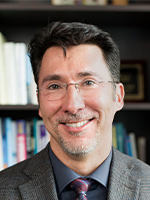
Chair: Anthony Viera, MD, MPH
Assistant: Kaye Gardner
Business Manager: Ellen O'Briant
Office: Suite 400, Room 405, Erwin Square
Campus PO Box: 2914
Phone: (919) 681-3178
The Department of Family Medicine and Community Health is a diverse, robust, interdisciplinary academic department with programs focused on education and training, patient care, community health, consultations and collaborations, and research and scholarship. The department is home to the Number 1-ranked Physician Assistant Program and the highly-ranked Duke Family Medicine Residency. The department’s mission is to serve our patients, learners, communities, and each other in pursuit of better health for all.
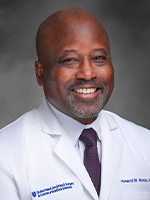
Chair: Howard Wayne Francis, MD, MBA
Assistant: Irish Hamilton
Business Manager: Shelley Opila, MPH
Office: 4000 Yellow Zone, Duke Clinics
Campus PO Box: DUMC 3805
Phone: (919) 684-3834
The Department of Head and Neck Surgery & Communication Sciences currently comprises 73 diverse faculty members and clinical associates involved in patient care, research, education, and community engagement.
Faculty members provide comprehensive, multidisciplinary, hospital-based care, including the regionally and nationally recognized clinical programs of the Duke Skull Base Program, Head and Neck Cancer Program within the Duke Cancer Institute, Duke Voice Care Center, and Duke Hearing Center. Research in the Department leverages the expertise across Duke University and includes the translation of discoveries in basic science into new treatment paradigms, the investigation of new clinical treatments and approaches to the management of head and neck and communication disorders, and the study of health delivery strategies and their impact on clinical outcomes and population health. Research led by faculty in the Department is funded by the National Institutes of Health, Patient-Centered Outcomes Research Institute (PCORI), Department of Defense (DOD), industry and philanthropic support.
The Department also commits itself to community engagement as a fourth mission area, with the goal of fostering innovative and equitable health solutions at the population level through outreach, partnership, and cultivation of a diverse and inclusive workforce. The department matches three residents every year for its 5-year residency program in Otolaryngology-Head and Neck Surgery, and a fourth for a 7-year research intensive residency training program funded by an NIH training grant. Two one-year research fellowships are offered to medical students also funded by the same grant. Fellowships are currently available in Rhinology and Endoscopic Skull Base surgery, and Otology/Neurotology.
The department’s vision encompasses a continuum of discovery and commitment to training the next generation of leaders, with the goal of advancing the care of head and neck and communication disorders and promoting healthier connections.

Chair: Kathleen Cooney, MD, MACP
Assistant: Emelia Dunston
Chief Administrative Officer: Amy Porter-Tacoronte, MBA
Office: 401 Davison Building
Campus PO Box: 3703
Phone: (919) 668-1755
The Department of Medicine, which consists of 13 divisions, is the largest department within the Duke University School of Medicine. It has a distinguished history of excellence in patient care, research, and education. The department’s nationally recognized clinical programs focus on providing compassionate, evidence-based care across all areas of internal medicine. With a strong commitment to being value-driven and data-informed, the department fosters scientific discovery and innovation through collaborations within Duke Health and beyond. These initiatives serve as the foundation for training future leaders in medicine through widely respected residency and fellowship programs, Many former trainees are moving medicine forward in academic, clinical, and research careers worldwide.
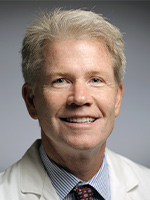
Chair: Richard J. O'Brien, MD, PhD
Assistant: Teikko Artis
Business Manager: Megan Phillips
Office: 227-J Bryan Research
Campus PO Box: 2900
Phone: 919-684-0079
The Department of Neurology understands the impact of devastating neurological disorders on the patient and their families. Our physicians treat and research complex neurological disorders, including neuropathy, epilepsy, sleep disorders, myasthenia gravis, migraine, head and neck pain, multiple sclerosis, Parkinson's, ALS, Alzheimer's, dementia, stroke, and tumors of the brain and spinal cord. Our training programs in neurology attract high-caliber residents and fellows, and our faculty is nationally recognized leaders in neurological education. Faculty members from our Department are nationally and internationally recognized leaders in their field of neuroscience research.
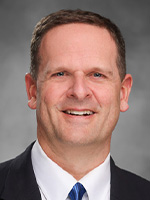
Chair: Gerald Arthur Grant, MD
Assistant: Tami Tuck
Chief Administrative Officer: Megan Phillips
The Duke Department of Neurosurgery is a preeminent program at the forefront of patient care, research, and education, with 74 clinical and research faculty, 21 residents, and seven fellows.
Since becoming a department in the School of Medicine in 2015, Duke Neurosurgery has experienced remarkable growth in all areas, including clinical volume, patient access, patient outcomes, philanthropy, resident satisfaction, and culture and wellness.
Investigators received over $8.4 million in grant funding in 2024, and the department ranks ninth in the country based on funding by the National Institutes of Health.
The world-renowned Preston Robert Tisch Brain Tumor Center is housed in the Department of Neurosurgery. The department developed the first Division of Global Neurosurgery and Neurology, which is now self-sustainable; a NeuroInnovations programs that spans the university; a Spine Division in partnership with Duke Orthopaedics; and the Duke Center for Brain and Spine Metastasis, which is now one of the fastest-growing clinical programs at Duke. Faculty provide care at Duke University Hospital, Duke Regional Hospital, Duke Raleigh Hospital, and Durham Veterans Affairs Hospital.
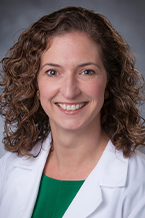
Interim Chair: Brenna Hughes, MD, MSc
Assistant: Laverne Alston
CAO: Joe English
Office: 203 Baker House
Campus PO Box: 3084
Phone: (919) 668-3948
The Department of Obstetrics and Gynecology comprises 11 clinical divisions, 100 faculty members, 36 residents, 19 sub-specialty fellows and 100 rotating medical students and physician assistant program students. The department is a multidisciplinary academic department dedicated to advancing the care of women through research, education, and patient care. We are at the forefront of women’s reproductive health care and making innovations to better our community, patients, trainees, faculty, and health care as a whole.
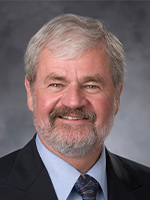
Chair: Edward Buckley, MD
Assistant: Michele Clifton
Office: 2351 Erwin Rd.
Campus PO Box: 3802
Phone: (919) 684-5846
The Department of Ophthalmology is one of the leading ophthalmology programs in the country. The department is comprised of eight clinical divisions, more than 70 clinical faculty and 15 research faculty members, 23 sub-specialty fellows, 25 residents (including 6 PGY1 residents in their intern year), and numerous rotating medical students. The department is dedicated to offering the latest in clinical eye care, innovation through basic research and translational discoveries, and training the next generation of comprehensive and sub-specialty ophthalmologists.
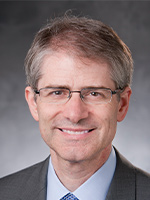
Chair: Ben Alman, MD
Assistant: Rose Nihill
Business Manager: Dara Purvis, MHA
Office: 311 Trent Drive, Durham, NC 27710
Campus PO Box: 104002
Phone: (919) 613-6935
The Department of Orthopaedic Surgery at Duke University stands at the forefront of global excellence in orthopaedics and rehabilitation, driven by a mission to advance research, education, and patient care. With a proud 97-year legacy, the department continues to attract world-class physicians, scientists, and trainees who are passionate about surgical innovation and transformative research. Duke’s renowned educational offerings include competitive orthopaedic residency and fellowship programs, as well as nationally recognized Doctor of Physical Therapy and Occupational Therapy Doctorate programs—each designed to shape the next generation of leaders in musculoskeletal health.
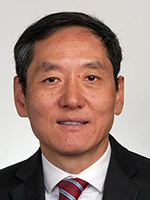
Chair: Jiaoti Huang, MD, PhD
Assistant: Patricia Lea
Business Manager: Amy Orange
Office: M301 Davison Building
Campus PO Box: 3712
Phone: (919) 684-4862
The Department of Pathology’s vision is to deepen the understanding of human illness and disease treatments through the use of technology and research. The department consists of 66 clinical and 19 research faculty, 29 residents, five fellows, 29 graduate students, and 16 Pathologists' Assistant students, all who strive to transform medicine and healthcare locally and globally through innovative scientific research, rapid translation of breakthrough discoveries, educating future clinical and scientific leaders, advocating and practicing evidence-based medicine to improve community health, and leading efforts to eliminate health inequalities.
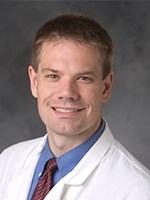
Interim Chair: Kyle Rehder, MD
Office Manager and Administrative Coordinator: Cherrita McCoy
Business Manager: Susan Kline
Office: T0901 Children's Health Center
Campus PO Box: 3352
Phone: (919) 681-4080
The Department of Pediatrics comprises 18 divisions and is the second largest division within the Duke University School of Medicine. The department is dedicated to providing world-class patient care to children of all ages in a family-centered atmosphere, training future leaders in pediatric medicine, discovering treatments that will enhance the health care of future generations, and advocating for children.
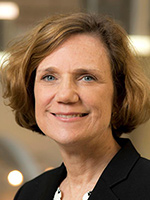
Chair: Moira Rynn, MD
Assistant: Angela Garrett
Vice Chair, Administration & Finance: Beth Glascock, MPA
Office: North Pavilion, 2400 Pratt Street, 7th Floor, Durham, NC 27705
Campus PO Box: Box 102508, Durham, NC 27710
Phone: (919) 684-5616
The Department of Psychiatry & Behavioral Sciences is an interdisciplinary leader in brain and behavioral health. The department’s 200+ full-time faculty members are organized into three divisions: adult psychiatry and psychology, behavioral medicine and neurosciences, and child/family mental health and community psychiatry. We seek to provide the best available care to patients and their families, while advancing science to improve mental health on a global scale and equipping its roughly 80 trainees to lead the future of behavioral health care.

Chair: Erik Sulman, MD, PhD
Assistant: Megan Peterson, CEAP
Business Manager: J. T. Solomon, MBA
Office: 05143A Morris Building
Campus PO Box: 3085
Phone: (919) 668-5640
The Department of Radiation Oncology consists of over 50 clinical and research faculty members, 16 medical residents and an esteemed Radiation Physics Division, including 4 physics residents. As part of the Duke Cancer Institute, faculty work with colleagues in Surgical Oncology and Medical Oncology to facilitate a comprehensive, multidisciplinary approach to the care of cancer. The department’s core missions are to provide expert, compassionate and prompt clinical service to patients; to generate new knowledge concerning causes, prevention and treatment of cancer; to transmit new knowledge from clinical and laboratory research; and to actively participate in and further the missions of the Duke Cancer Institute, Duke Health and Duke University.
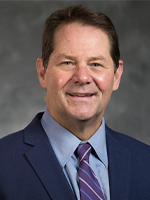
Chair: Erik Paulson, MD
Assistant: Maria Nelson
Chief Administrative Officer: Jeanne Kirschner
Office: 40 Duke Medicine Circle, Room 2560, Red Zone, Duke South
Campus PO Box: 3808
Phone: (919) 684-7289
The Department of Radiology is committed to providing the highest-quality imaging services, reporting, safety, education, and support of innovative laboratory and clinical research.
We embrace a diverse and inclusive community of patients, students, staff, learners, and faculty. Our product is most successful when we work as teams.
Our clinical operation is comprised of nine subspecialty divisions that include Abdominal Imaging, Breast Imaging, Cardiothoracic Imaging, Community Division, Interventional Radiology, Musculoskeletal Imaging, Neuroradiology, Nuclear Medicine and Radiotheranostics, and Pediatric Radiology. We have over 100 subspecialty clinical faculty, 52 residents, and 32 fellows who serve 11 locations. Our residency is among the most competitive in the country, and Radiology is a required clerkship for every Duke University medical student. Our radiologists work closely with referring physicians to provide state-of-the-art radiologic care and service to our patients.
Our research operation is focused on improving patient care by discovering innovations in the imaging field. We have centers and faculty devoted to artificial intelligence, cutting-edge applications of MR, and pre-clinical small animal imaging with a focus on In-Vivo microscopy. This center offers methodology for evaluating imaging technologies and applications in silico using computational models that simulate patients and translational molecular imaging. We have 30 dedicated research faculty and 12 research-focused labs.

Chair: Peter J. Allen, MD
David C. Sabiston, Jr. Distinguished Professor of Surgery
Assistant: Melanie Kranz
Vice Chair, Administration and Finance: Katherine Stanley
Office: 7690 HAFS Building, Duke North
Campus PO Box: DUMC 3704
Phone: (919) 681-3445
The Department of Surgery is one of the leading surgery programs in the world, committed to Duke Health's mission of providing outstanding and compassionate patient care, training tomorrow's leaders, and conducting innovative research. Across 11 specialty divisions, the department consists of more than 200 clinical and research faculty, approximately 130 house staff, and several hundred staff members.
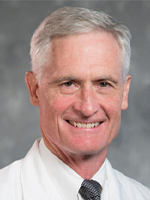
Chair: Gary Faerber, MD
Chief Administrative Officer: Shelley Opila, MPH
Office: 40 Duke Medicine Cir, Room 1557
Phone: 919-684-2446
“The Duke Department of Urology provides compassionate, state-of-the-art medical and surgical patient care, comprehensive medical education, and innovative research in all areas of adult and pediatric urology. Over eight decades of experience in caring for patients with urologic diseases has established Duke Urology as a world leader in urologic care, research, and education. The department’s faculty consists of leaders in their fields, who are dedicated to advancing urologic care to all patients through innovative technologies and training the next generation of urologists.

Director: Allen Song, PhD
Office: 40 Duke Medicine Circle, Room 414
Durham, NC 27710
Campus: Box 3918
Phone: (919) 681-9337
Email: info@biac.duke.edu
Faculty members in the BIAC are leaders in imaging methodology development, analysis techniques, as well as in their application in cognitive and clinical neurosciences. In addition, BIAC offers imaging services to other faculty members on campus and at the University of North Carolina in Chapel Hill.

Director: Heather Whitson, MD, MHS
Office: Room 3502 Busse Building, Blue Zone, Duke South
Campus: DUMC 3003, Durham, NC 27710
Phone: (919) 660-7500
Email: AgingCenter@duke.edu
The Duke Center for the Study of Aging and Human Development (Duke Aging Center) is a multi-disciplinary hub for the promotion of healthy aging across the lifespan and management of social and medical complexities in late life. With more than 150 affiliated faculty members from across the University and Medical Center, and millions of dollars annually in aging-related research funding, the Center is a vital national resource for the study of aging.
Current research includes: studies of resilience to late-life stressors; age-related functional decline; genomic, proteomic and metabolomic biomarkers of aging; exercise and nutrition; osteoporosis; Alzheimer’s disease and other contributors to dementia; aging in high-risk populations; cancer and aging; viral diseases of aging; depression in later life; caregiver stress; and religion/spirituality and health. The Center is dedicated to advanced training and innovative education for the next generation of gerontologists and geriatricians, and to expanding, connecting, and enhancing the field of aging-related research at Duke and beyond.
Office: 2301 Erwin Road, Durham, NC 27710
Email: aihealth@duke.edu
Duke AI Health connects, strengthens, amplifies, and grows multiple streams of theoretical and applied research on artificial intelligence and machine learning at the University in order to answer the most urgent and difficult challenges in medicine and population health. Designed as a multidisciplinary, campus-spanning initiative, AI Health harnesses expertise and insights across multiple schools, centers, and institutes at Duke to bring to bear the power of machine learning and related quantitative fields on medicine, healthcare delivery, and the health of individuals and communities.
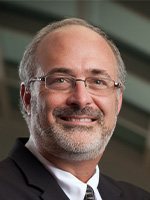
Director: Michael Kastan, MD, PhD
Office: 10 Bryan Searle Drive, Seeley Mudd Building, Durham, NC 27710
Campus: DUMC Box 3917
Email: submit form
By uniting hundreds of cancer physicians, researchers, educators, and staff across the medical center, medical school, and health system under a shared administrative structure, the DCI offers unprecedented opportunities for teamwork among laboratory scientists and health care providers caregivers in Duke hospitals and clinics.
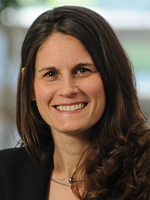
Director: Susanna Naggie, MD, MHS, FIDSA
Office: Chesterfield Building, 701 W. Main Street, Suite 500, Durham, NC, 27701
Campus Box: Box # 90535, Durham, NC 27708
Phone: (919) 668-8045
Email: DukeCTSI@dm.duke.edu
CTSI’s mission is to:
- Accelerate scientific discovery, innovation, and translation
- Develop and sustain a vital and diverse translational science workforce
- Foster a vibrant, transparent, and trustworthy research environment benefiting all
- Create and promote a culture of inclusion throughout all aspects of clinical and translational science at Duke

Vice Dean and Executive Director: Adrian Hernandez, MD, MHS
Office: 300 W. Morgan Street, Durham, NC 27701
Phone: (919) 668-8300
Email: submit form
The Duke Clinical Research Institute (DCRI) combines practicing clinicians with comprehensive CRO capabilities to deliver innovative, efficient, and reliable clinical research. With nearly 30 years of operational expertise and engagement with key patient populations, they have conducted groundbreaking trials with their global partners, managed major registries, and achieved regulatory-compliant results for pharmaceutical, biotech, and government sponsors across all phases of development. DCRI's global network spans 3,500+ study sites across 40+ countries with specialized expertise in multiple therapeutic areas. The institute provides comprehensive clinical trial services, including study design, site management, data collection, biostatistics, regulatory affairs, and post-market research to accelerate drug development from early-phase trials through commercialization.

Director: Chris Beyrer, MD, MPH
Office: 310 Trent Drive, Durham, NC 27710
Campus PO Box: Box 90519, Durham, NC 27708
Phone: (919) 681-7760
Email: globalhealth@duke.edu
Faculty members in the DGHI work to reduce health disparities in the local community and worldwide. The DGHI recognizes that many global health problems stem from economic, social, environmental, political and health care inequalities, and the institute brings together interdisciplinary teams to solve complex health problems and to train the next generation of global health scholars.
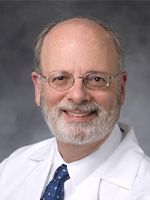
Director: Barton Haynes, MD
Chief Administrative Officer: Michelle H. Smith
Office: 2 Genome Court, MSRB II
Campus: DUMC 103020
Phone: (919) 684-5384
Email: submit form
The Duke Human Vaccine Institute (DHVI) is internationally recognized as a leader in developing preventive countermeasures against emerging and re-emerging infectious diseases. DHVI performs the work that society needs and responds rapidly to new emerging threats with state-of-the art technology developed by DHVI scientists for the development of vaccines or therapies.

Director: Mark Somner, PhD
Office: Levine Science Research Center
308 Research Drive
Campus: Box 91003
Phone: (919) 668-2512
Email: dukebrain@duke.edu
The Duke Institute for Brain Sciences (DIBS) is a cross-school, campus-wide, interdisciplinary institute at Duke University with a commitment to building an interactive community of brain science research and scholarship to translate discoveries into solutions for health and society. DIBS encourages innovation and collaboration that transcends the boundaries of traditional disciplines, bringing together a diverse community of academics from biomedical science, social science, physical science, humanities, law, business, public policy, mathematics, computer science and engineering.
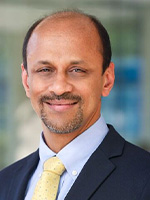
Program Director: Suresh Balu, MS, MBA
Office: 300 W. Morgan St., Durham, NC 27701
Phone: (919) 684-4389
The Duke Institute for Health Innovation (DIHI) promotes innovation in health and health care through high-impact innovation pilots, leadership development, and cultivation of a community of entrepreneurship. DIHI brings innovative solutions to the most pressing challenges in health and health care by catalyzing multidisciplinary teamwork across Duke University and Duke Medicine and by fostering collaborations with national and international thought leaders.

Director: Mark McClellan, MD, PhD
Office: 100 Fuqua Drive, Box 90120
Durham, NC 27708
Phone: (919) 419-2504
The Institute's mission is to improve health, health equity, and the value of health care through practical, innovative, and evidence-based policy solutions.

Director: Christopher Newgard, PhD
Office: 300 North Duke Street, Durham, NC 27701
Phone: (919) 479-2300
Email: dmpi@duke.edu
The DMPI produces integrated multi-omics and physiologic profiles of chronic human diseases, and uses such profiles to develop new disease detection strategies, novel therapies, and insights into disease mechanisms.
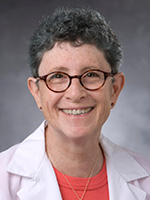
Director: Joanne Kurtzberg, MD
Office: 2400 Pratt Street, Durham, NC 27710
Phone: (919) 668-1102
E-Mail: marcuscenter@duke.edu
The Marcus Center for Cellular Cures (MC3) at Duke University School of Medicine has been established to bring together physicians and faculty across medicine and engineering at Duke to develop cellular and biological therapies for autism, cerebral palsy, stroke, multiple sclerosis and related brain disorders.
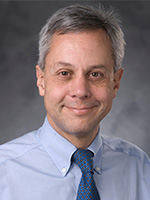
Director: Jeffrey Baker, MD, PhD
Office: 108 Seeley G. Mudd Building, 10 Bryan-Searle Drive, Durham, NC 27710
Phone: (919) 668-9000
Email: trent-center@duke.edu
For over 25 years, the Trent Center for Bioethics, Humanities & History of Medicine has offered a translational space at Duke University to examine how the disciplines of the humanities – such as philosophy, ethics, literature, and history – can help inform issues facing medicine. Our programs, events, and resources serve students within the Schools of Medicine and Nursing as well as faculty and staff throughout the university. The Trent Center includes over 40 affiliated faculty representing over 12 disciplines across five Duke schools.